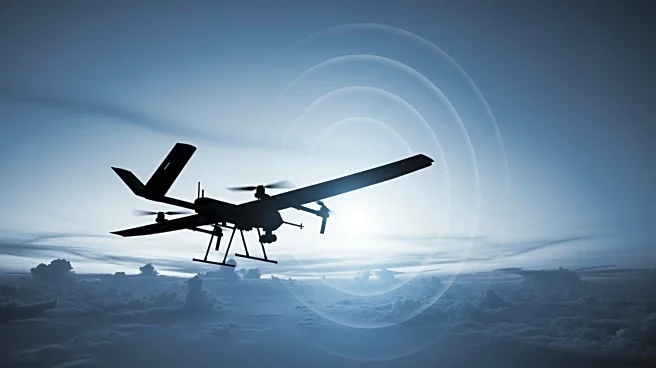What's Happening?
The U.S. military has conducted surveillance flights near Venezuela, involving F/A-18 Super Hornets and an RC-135V Rivet Joint electronic surveillance plane. These flights are part of a pressure campaign ordered by President Trump against Venezuelan leader
Nicolas Maduro, aimed at testing Venezuela's air defense capabilities. The operation, known as Operation Southern Spear, includes a significant U.S. military presence in the Caribbean, with assets such as B-52H bombers and F-35B stealth fighters. The campaign is intended to gather intelligence on Venezuela's defense systems and demonstrate U.S. military capabilities in the region.
Why It's Important?
The U.S. military's activities near Venezuela highlight ongoing tensions between the two countries and the strategic importance of the Caribbean region. By testing Venezuela's air defenses, the U.S. aims to assess the readiness and capabilities of Maduro's military forces, potentially informing future military operations. This show of force may increase pressure on Maduro's regime and could lead to heightened diplomatic tensions. The operation also reflects broader U.S. efforts to counter narcotics trafficking and assert influence in the region, which may impact regional stability and international relations.
What's Next?
The U.S. may continue its surveillance and pressure campaign, potentially leading to further military operations or diplomatic actions. The designation of Cartel de los Soles as a Foreign Terrorist Organization could provide the U.S. with additional options for addressing the situation in Venezuela. The international community will likely monitor developments closely, as increased military activity in the region could have implications for regional security and U.S.-Venezuela relations.
















